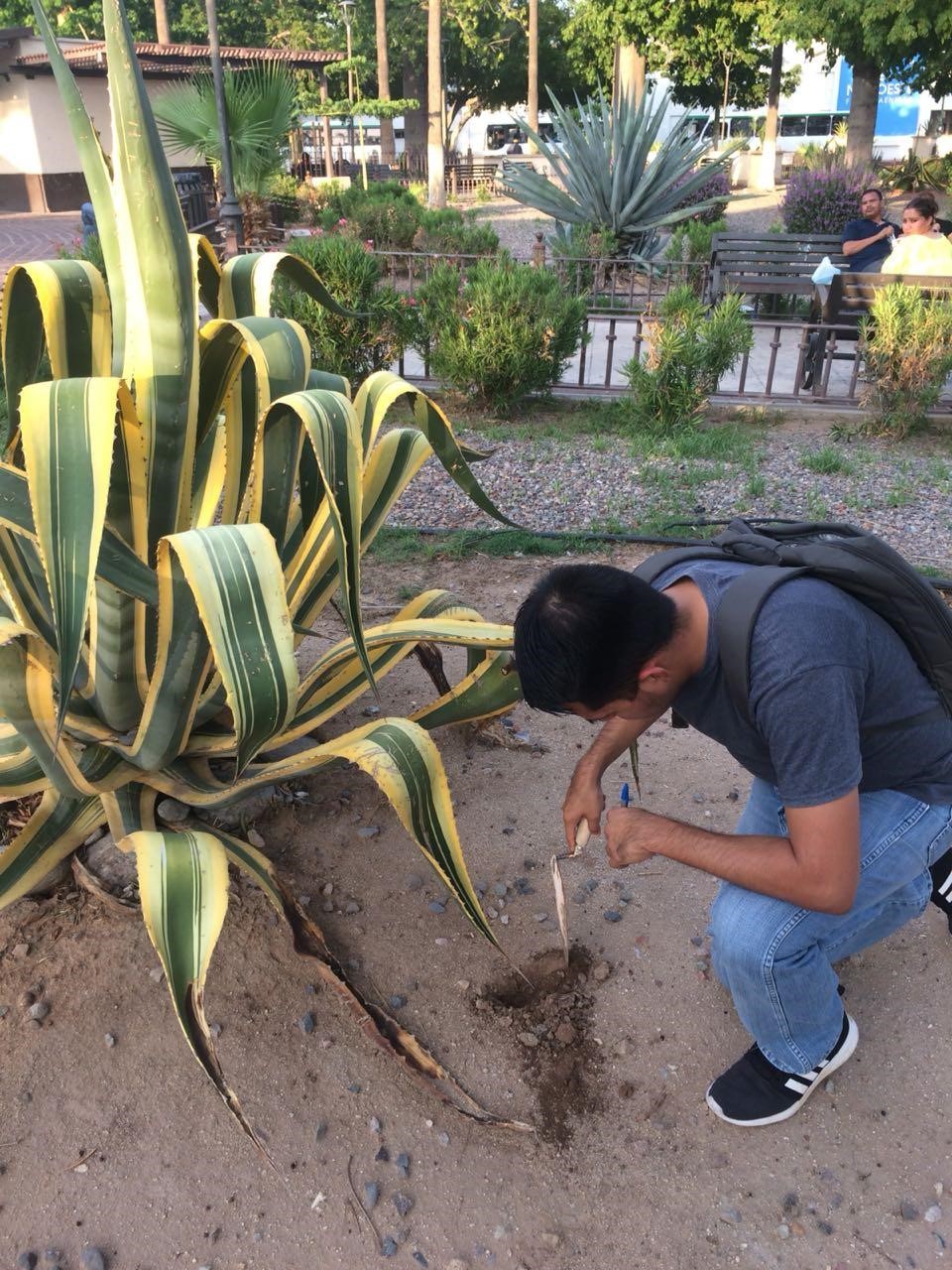David Ruiz is a senior undergraduate student majoring in Public Administration at the University of Sonora in Hermosillo, Mexico. David won the International Water Security Network Student Prize 2018. He is interested in water security issues related to greenspace and has been working on his research project over the past couple of months. Below, he describes his research activities.
 I have spent the summer working on a project about water security in the parks of Hermosillo, Mexico. We need sustainable solutions in our municipality, and this is one of the key reasons why this research attracted my attention. The main problem in the city is the lack of water, and parks require this vital resource. Therefore, I have been visiting three parks that are representative of the city – Parque Madero, Plaza Zaragoza and Jardín Juárez – and verifying both the system and the type of water (treated or potable) used for irrigation.
I have spent the summer working on a project about water security in the parks of Hermosillo, Mexico. We need sustainable solutions in our municipality, and this is one of the key reasons why this research attracted my attention. The main problem in the city is the lack of water, and parks require this vital resource. Therefore, I have been visiting three parks that are representative of the city – Parque Madero, Plaza Zaragoza and Jardín Juárez – and verifying both the system and the type of water (treated or potable) used for irrigation.
In addition to the irrigation systems, I am examining the types of plant species used in the parks. I have noticed that there is much vegetation that is not native to this region. The most abundant species found within these case study areas are the Olive (Olea Europea), Black Olive (Bucida Buceres), Nym (Azadirachta Indica), Citrus, Ceiba, and the Garden Palm (Trachycarpus Fortunei), which are known to provide significant shade and reduce CO2 emissions. These types of vegetation provide multiple benefits, including mitigating the high temperatures of the city, which are constantly increasing due to urbanization and climate change. It should be noted that endemic vegetation (such as mesquites and palo verde) provide similar benefits, with respect to reducing high temperatures, yet they require less water.
This research is interdisciplinary because it involves botany (to identify vegetation) and agronomy focused on plant breeding (to determine the type of soil). Determining the soil type is a critical component in ensuring the health and life of the plants, since soil provides the necessary nutrients to stay alive. Ideally, in order to ensure the proper maintenance and irrigation of the parks and gardens, the preferred solution is an irrigation system, the use of treated water and xerophytic trees to reduce water consumption.
